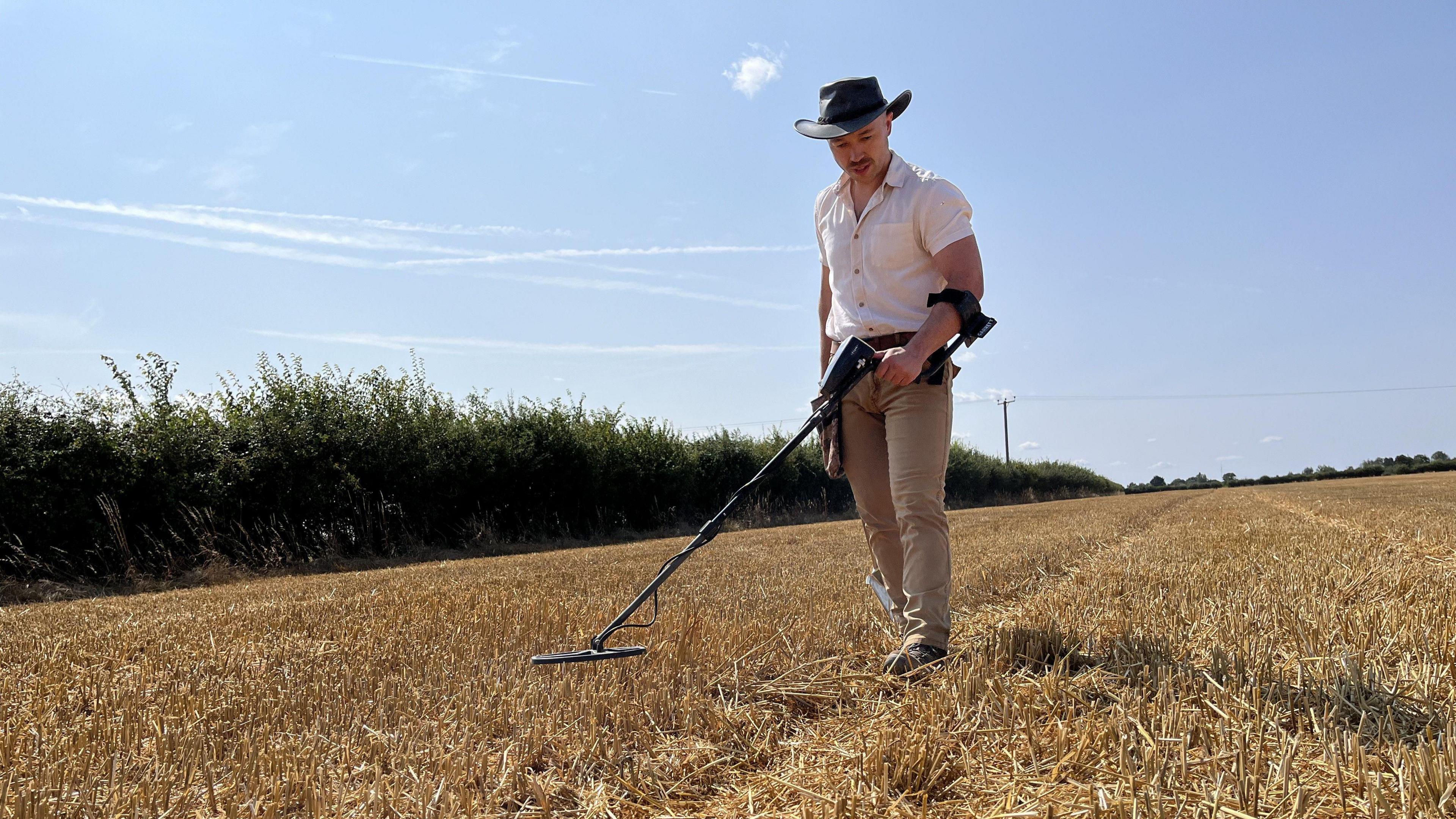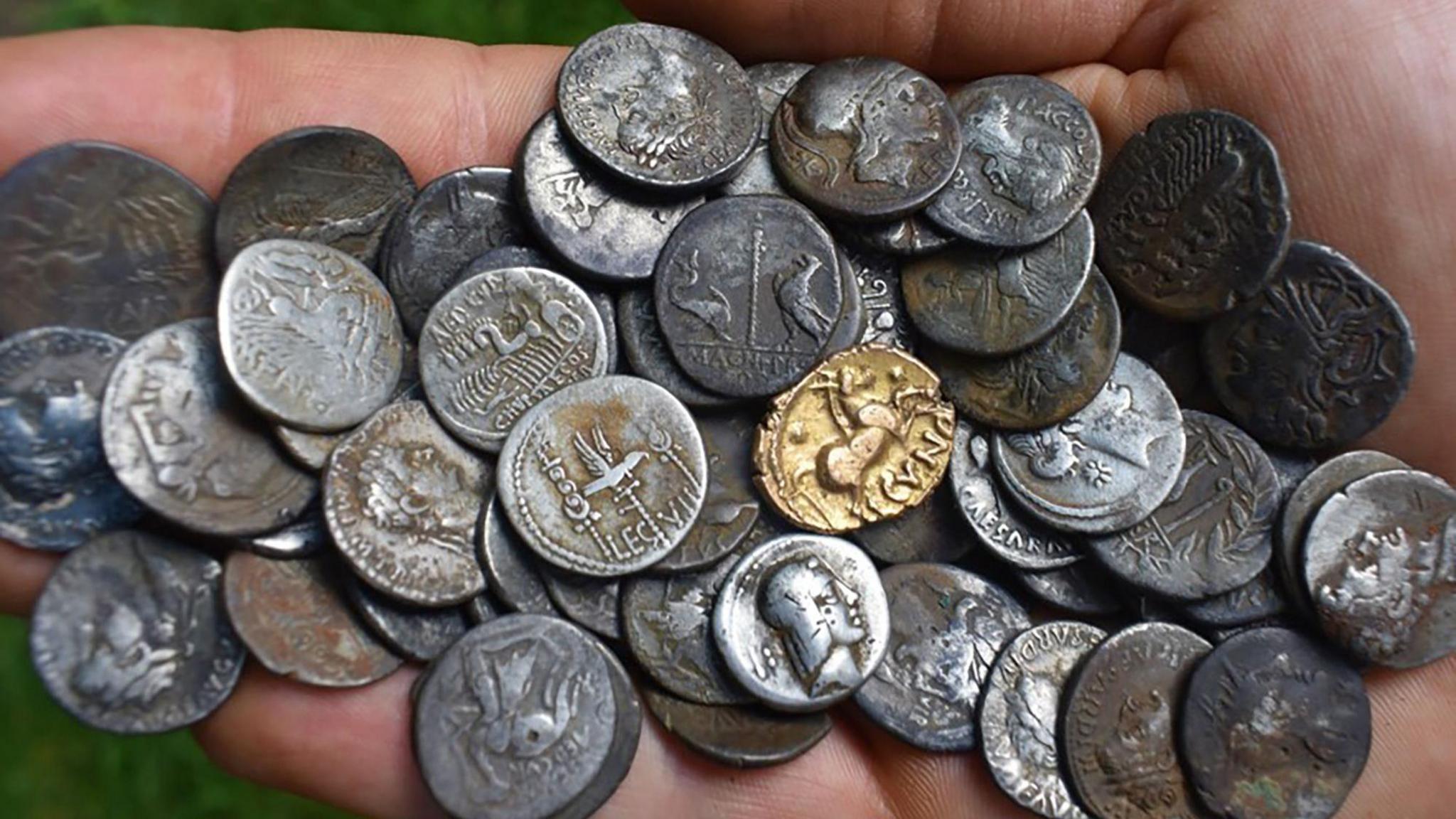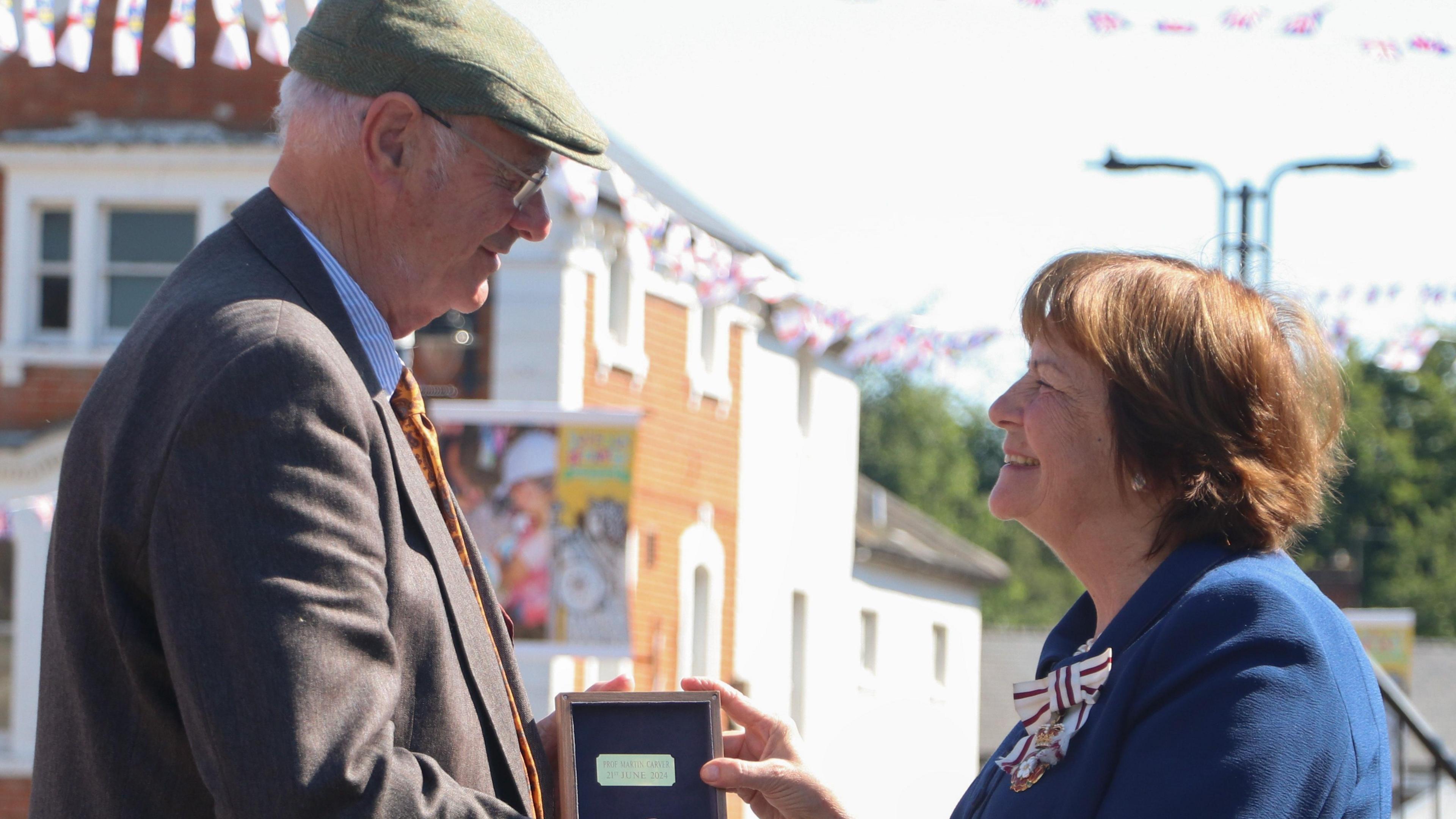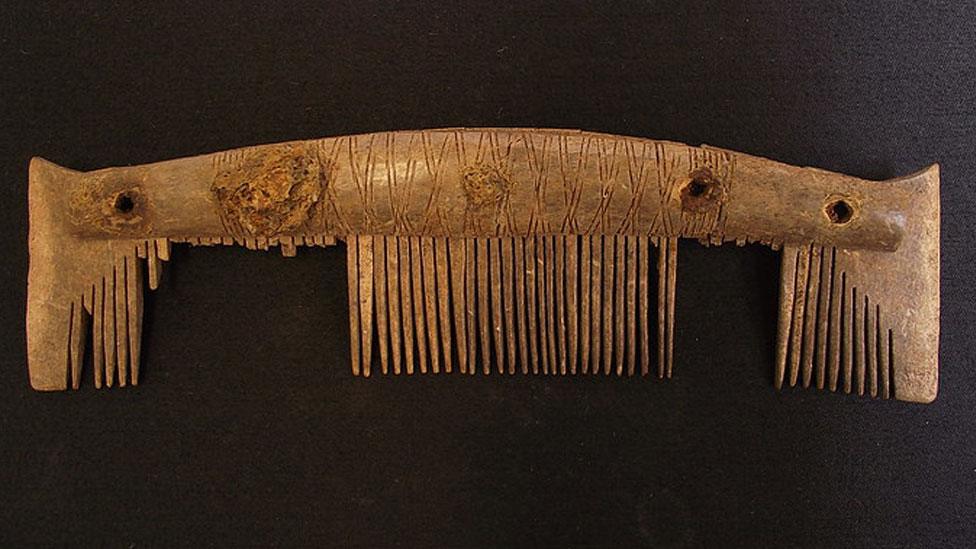Indiana Jones-inspired man finds 748 historic coins

When not hunting for artefacts, George Ridgway works for his family-run butcher's firm
- Published
A metal detectorist who was inspired by Indiana Jones was left in awe when he uncovered a hoard of hundreds of historic coins.
George Ridgway, 34, a trained archaeologist from Ashbocking, near Ipswich, found 748 gold and silver coins at Helmingham Hall, Suffolk.
The coins date from as early as 206 BC through to 46 or 47 AD, when Claudius ruled over the Roman Empire.
After several museums took some for their own collections, more than 680 of the coins are expected to fetch £75,000 at auction.

Mr Ridgway was left in awe when he found one of Britain's largest collection of Roman and Iron Age coins
Mr Ridgway began his hunt back in September 2019.
"I decided to investigate an unusual crop mark in a recently harvested barley field in Suffolk with my Garrett AT Pro metal detector," he explained.
"I knew that a Roman road ran close to the field and was hoping the two might be related, but after scouring the area, nothing turned up."
He decided to move 30yds (27m) away and recovered two early Roman bronze Colchester type brooches dating from the mid-first century AD.
"Another clear signal nearby from the detector then revealed a silver denarius, a coin that had been issued by Julius Caesar in 46 BC," Mr Ridgway continued.
"I couldn’t believe that over the next three hours of searching, I found 160 more Roman silver coins, with a few of the coins stuck to pottery fragments.
"I knew I had made an important archaeological discovery and called my dad to guard the site overnight while we waited for an archaeological team to arrive and excavate the site. It took three months to recover the hoard."

Mr Ridgway plans to buy his dad a pint once the coins are auctioned off
The hoard is believed to be one of the biggest collections of Iron Age and Roman coins ever found in Britain.
The British Museum, as well as Colchester and Ipswich Museums, claimed a total of 63 of the coins for their own collections.
Mr Ridgway said he was inspired to start "history hunting" by "childhood hero" Indiana Jones when aged just four, and had dreamed of discovering a Roman hoard since his grandmother bought him a metal detector for his12th birthday.
"It was an awe-inspiring moment when I realised that I had found one," he said.
The proceeds from the auction - to be held by Noonans Mayfair on 18 September - will be split between Mr Ridgway and the landowner.
He said the first thing he would do with the money would be to buy his dad a pint.
Among the highlights of the collection is a stater from the reign of Cunobelin (AD 8-41) decorated with a prancing horse.
This is estimated to be worth £3,000 to £4,000.
A denarius of Gaius Caesar, better known as Caligula, dating from AD 37-38 decorated with a portrait of Agrippina is expected to fetch £2,000 to £2,600.
A denarius of Claudius from Rome, dating from AD 46-47, is also estimated at £2,000 to £3,000.
LISTEN: Metal detectorist stuck gold... and silver
Get in touch
Do you have a story suggestion for Suffolk?
Follow Suffolk news on BBC Sounds, Facebook, external, Instagram, external and X, external.
Related topics
More stories like this
- Published22 June 2024

- Published4 June 2024

- Published2 April 2024
